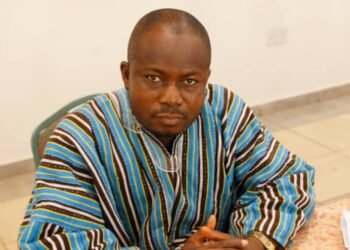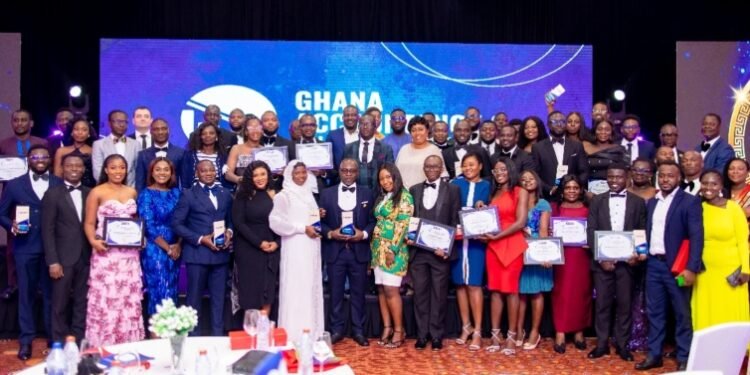Center for Democratic Development (CDD-Ghana) Fellow, Professor Stephen Kwaku Asare, has raised concerns over how citizens turn to put self-interest above collective interest, which is also known as ‘choosing the self over the common good.’
He emphasized that this approach to life across various spheres, especially within the public sector, continues to worsen Ghana’s problems, including issues of corruption, the fight against illegal mining (galamsey), law enforcement challenges, among others.
“When the pursuit of me eclipses the concern for we, the results are predictable: the erosion of trust, the decay of institutions, and the normalization of dysfunction. What begins as opportunistic self-preservation soon metastasizes into national paralysis.”
Professor Stephen Kwaku Asare, Center for Democratic Development (CDD-Ghana) Fellow
Prof. Asare noted that despite everyone knowing the dire consequences of illegal mining (galamsey), how it poisons our rivers, destroys farmlands, and degrades the environment, many have refused to point out the perpetrators involved, just because a cousin, a brother, or a financier benefits, adding that it is greed that blinds us to the cost of polluted water, barren soil, and broken communities.
“We trade tomorrow’s water for today’s cash and act surprised when the taps run dry. The logic is simple: if enough people think, “I must get mine,” then no one ends up with anything worth having.”
Professor Stephen Kwaku Asare, Center for Democratic Development (CDD-Ghana) Fellow
He further noted that the same applies at public offices, where people pursue their selfish interest over the interest of the state for which they are kept in those offices. “We cheer those who loot “smartly,” justify those who share the loot, and vilify those who expose it.” He stated.

Out of self-centeredness, people turn to treat public power like a family inheritance that is passed down, protected, and exploited for personal gain, and accountability then becomes an unwelcome burden to duty bearers. This mindset, he contends, corrodes trust, undermines democracy, and leaves citizens bearing the cost of unchecked authority.
“The tragedy is not only the looting; it is the quiet consent of citizens who see wrongdoing and shrug.” He emphasized.
“Take our approach to law enforcement. We want the police to enforce the law, just not against us. We bribe, plead, and threaten to escape small penalties, then lament the impunity of the powerful. But impunity grows from the same soil of selective morality. A society that tolerates petty corruption should not be surprised when it matures into grand corruption.”
Professor Stephen Kwaku Asare, Center for Democratic Development (CDD-Ghana) Fellow
In the area of politics, he flagged the same self-centered approach to governance, where the motive for many is not about transformative leadership that inures to the benefit of the whole society but to have access to state resources and channel such for personal and family gain.
Prof. Asare further added that often times people choose sides not out of conviction or understanding, but out of self-interest, adding that loyalty thereof is shaped less by principles and more by promises of gain, where people follow not for ideology but for opportunity.
“ We hear the constant refrain: “I worked hard but have been ignored.” We sneer that “as for this one, he helped nobody.” We pressure relatives in office to loot, as if there were no tomorrow.”
Professor Stephen Kwaku Asare, Center for Democratic Development (CDD-Ghana) Fellow
He noted that when it comes to driving, the same pattern of behavior takes place, where no one commits to obeying the rules in the name of urgency.

“We speed, overlap, ignore red lights, and curse the police. Each of us is in a hurry; collectively, we go nowhere. The chaos on our roads mirrors the chaos in our politics: everyone competing to get ahead, few caring about direction.”
Professor Stephen Kwaku Asare, Center for Democratic Development (CDD-Ghana) Fellow
He emphasized that most of the challenges of the country are not out of wonder but out intentional selfishness, as is captured in James 6. “For where envy and selfish ambition exist, there you find disorder and every evil practice.” “When selfish ambition becomes our national creed, disorder ceases to be an accident; it becomes a culture!” He stated.
“The common good is not an abstract ideal. It is the air we breathe, the water we drink, the safety we enjoy, and the justice we depend on. When we neglect it, we do not just harm others—we impoverish ourselves.”
Professor Stephen Kwaku Asare, Center for Democratic Development (CDD-Ghana) Fellow
He emphasized that the remedy is not about “grand speeches, new slogans, or more laws that will go unenforced,” but a revolutionized mindset at the personal level, whereby one chooses the common good even when there is no supervision. “A nation changes not when leaders preach virtue but when citizens practice it.” He added.
READ ALSO: Ato Forson Rallies Nation Ahead of Budget 2026: “Time to Grow, Transform, and Build Ghana”






















